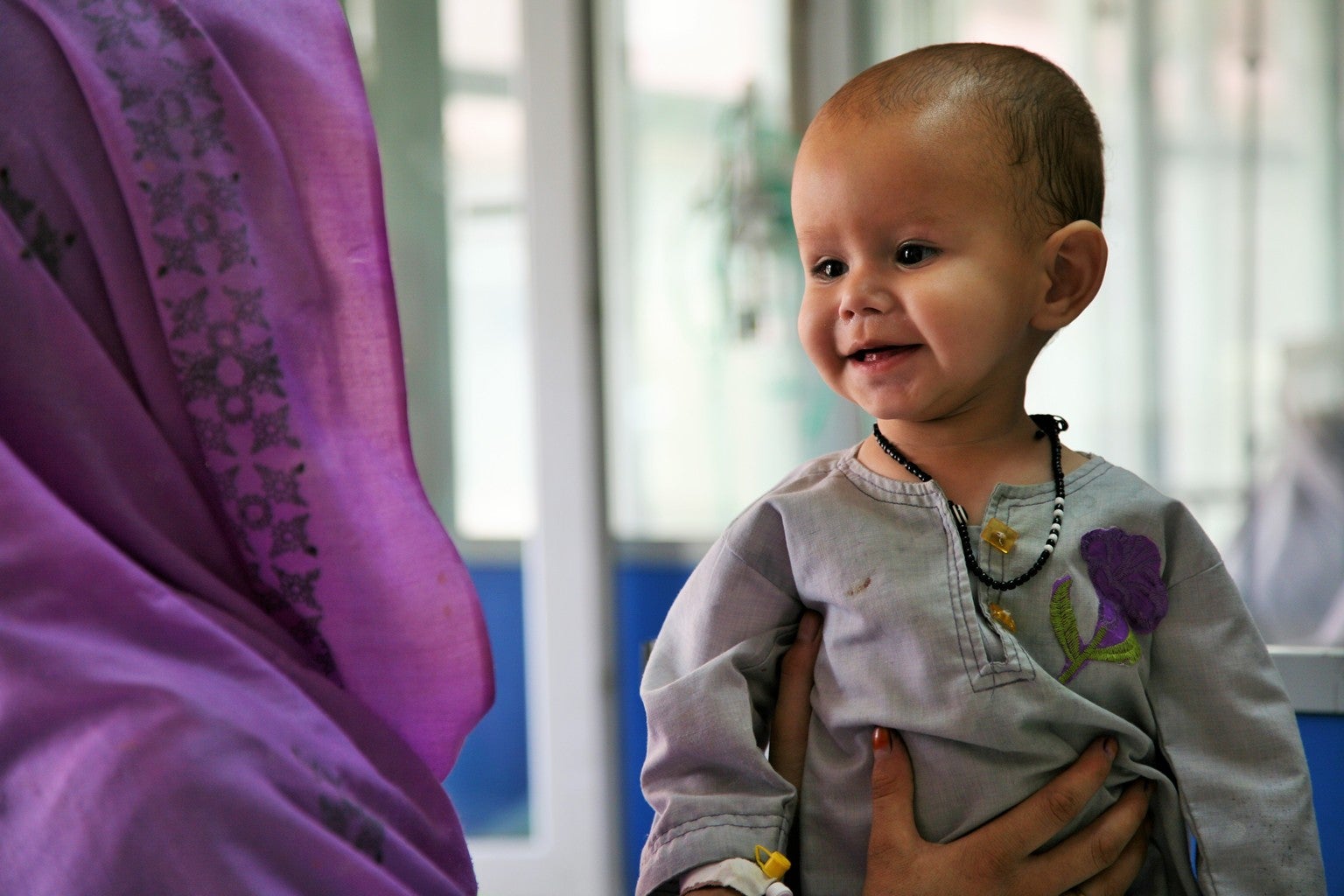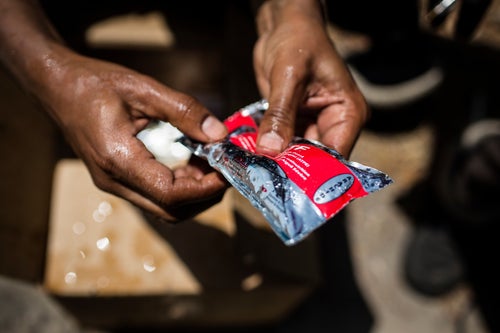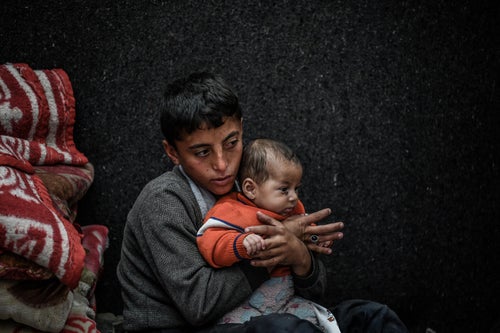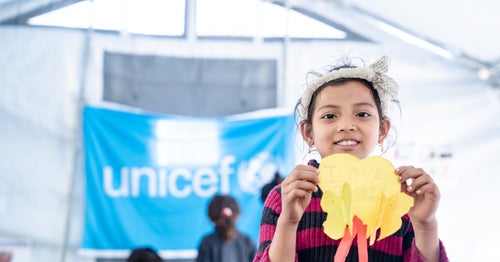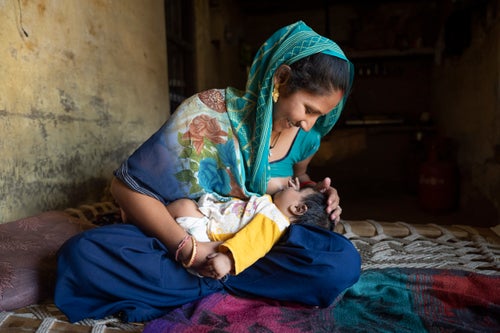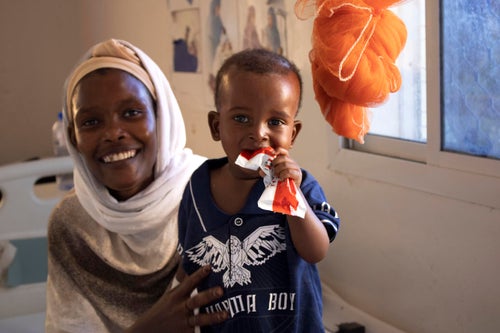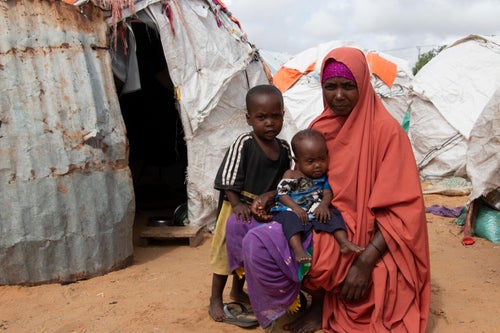When we talk about hunger, we think of the worst. But what about the stories of strength and determination?
Right now, one and a half million children have been forced into severe hunger in Yemen, Somalia, Afghanistan and Liberia. It's a shocking number.
But no-one should be defined by a number.
We've seen incredible resilience from families, children, healthcare workers and doctors.
These photos show the full story.
Hard-working farmers struck by drought
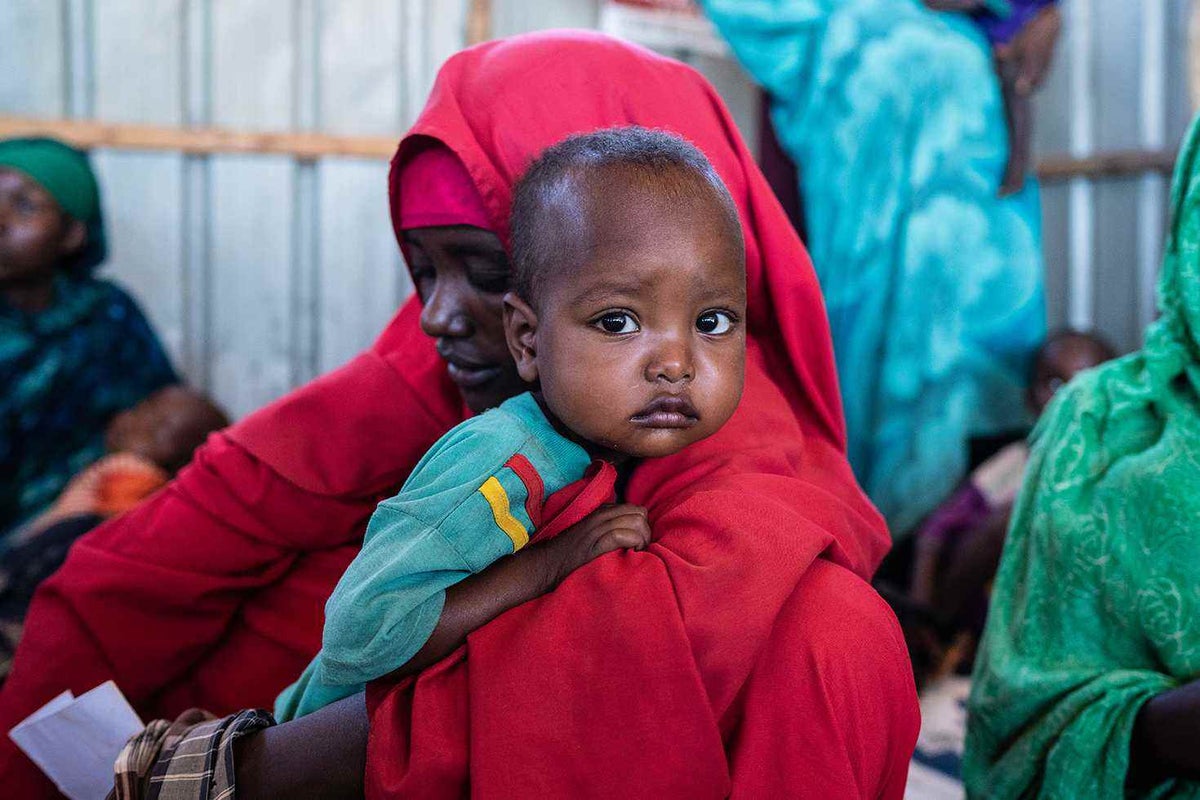
Nuna and her family were forced to leave their home due to drought and conflict in Somalia.
After all their livestock died, Nuna could no longer feed her baby, Mohammed, or his three siblings. The family were forced to seek refuge in a nearby camp for internally displaced people.
"I do not have a lot in this camp," Nuna says.
"But at least I am able to take care of my children. As soon as Mohammed got sick, I brought him to this centre and now he is getting better."
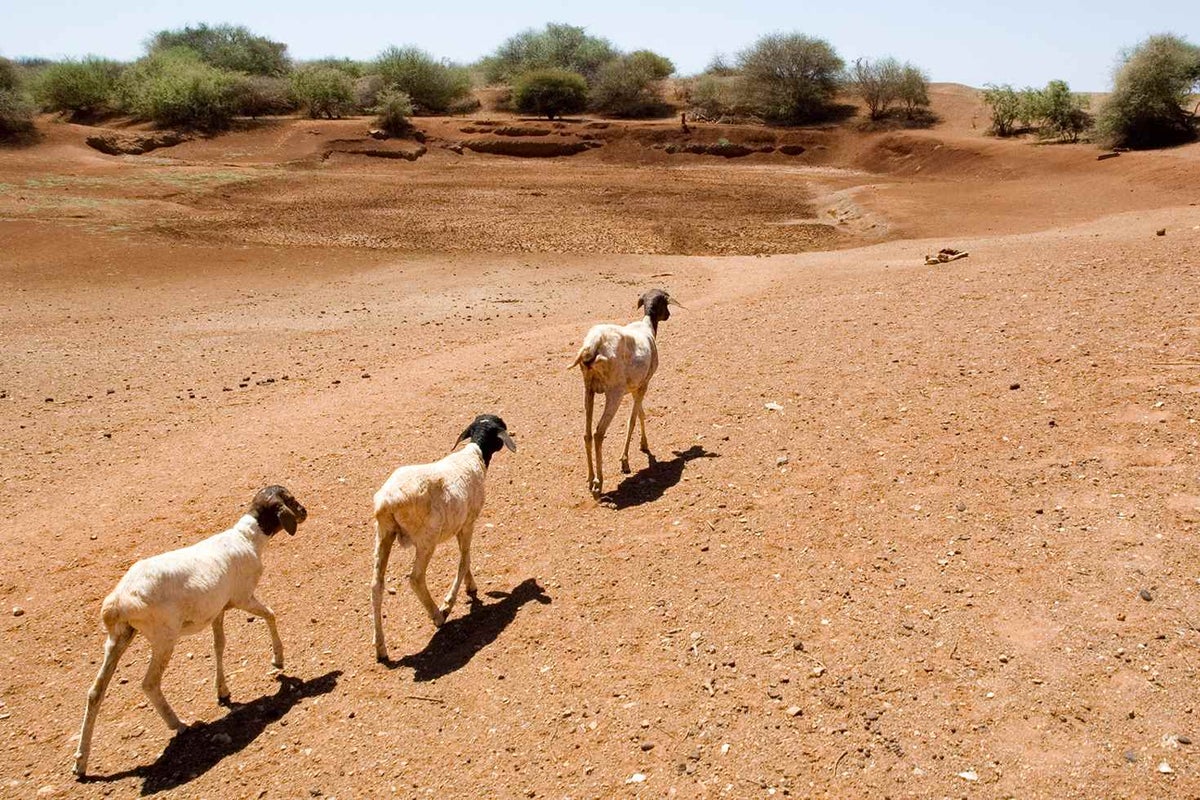
Climate change, civil war and sporadic unrest since the 1980s has devastated the agricultural sector and health infrastructure in Somalia.
At the nutrition centre in the Moqor Manyow camp, one-year-old Mohammed receives vitamin-enriched food and treatment for malnutrition.
"The people teach me how to take better care of my children so I can protect them from disease," Nuna says.
Children going the distance in search of water
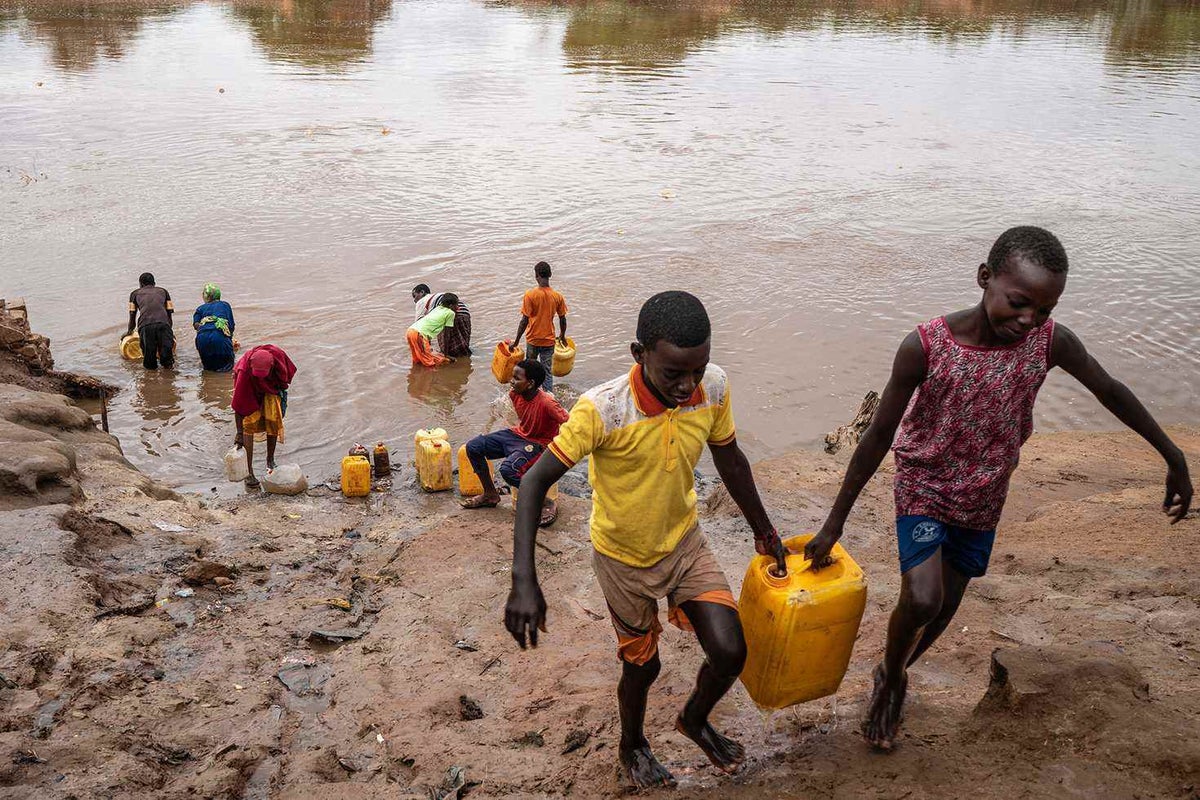
Lack of safe water is a major issue in combating malnutrition in children.
Dirty drinking water and poor sanitation and hygiene can lead to water-borne diseases such as diarrhoea and other infections that leave children's bodies unable to absorb nutrients properly.
For families in Somaliland, this year has been particularly challenging. The landscape is increasingly dry and dusty and many water points in the eastern regions are drying up.
Rainfall levels so far this year have been among the driest on record with current conditions worse than in the same period of 2017, when a devastating drought saw animals die, crops fail and a huge exodus of people from their homes to makeshift camps in desperate search of assistance.
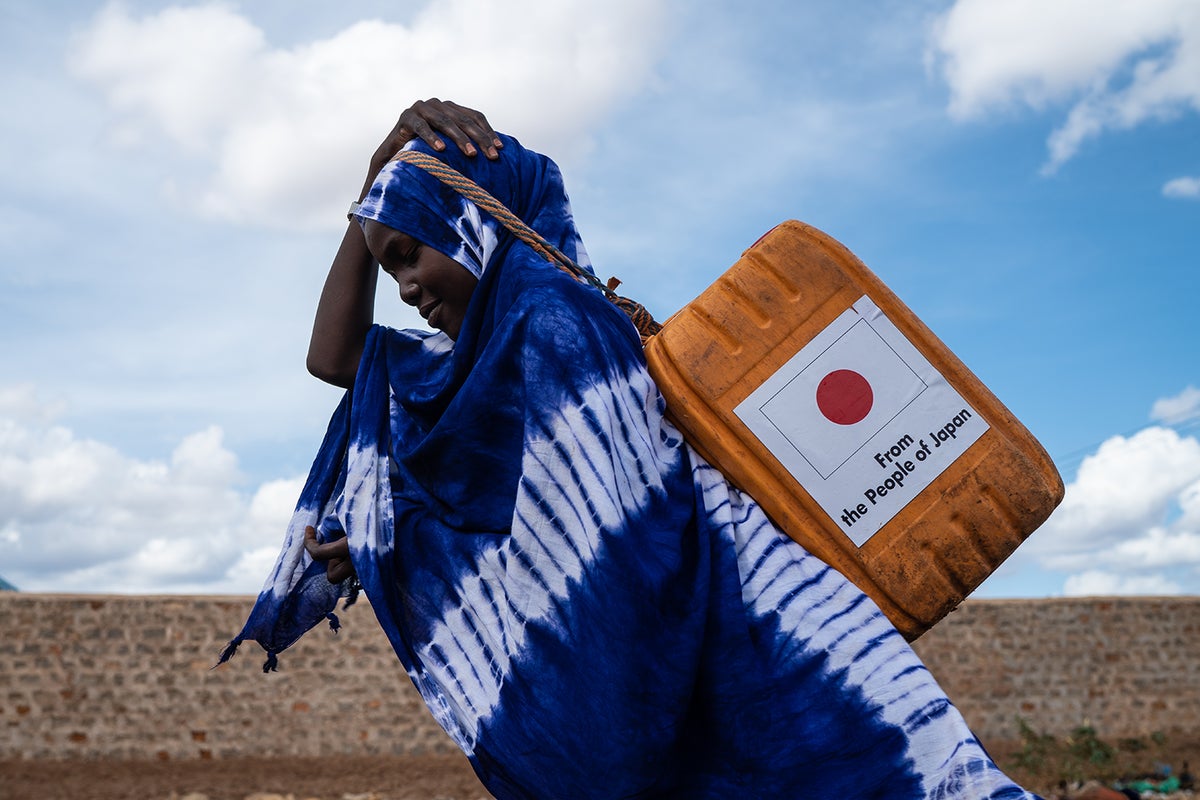
Hadija, 13, now lives a short distance from a UNICEF-provided water point.
Before the water point was installed, Hadija had to walk almost two hours every day to collect water for her family.
Hadija, her six siblings and her parents travelled over 400 kilometers to Baidoa in 2015 after fleeing violence and unrest. They now live in a refugee camp.
UNICEF delivers safe water five times a day to this water point which serves more than 1,000 households to help keep families safe.
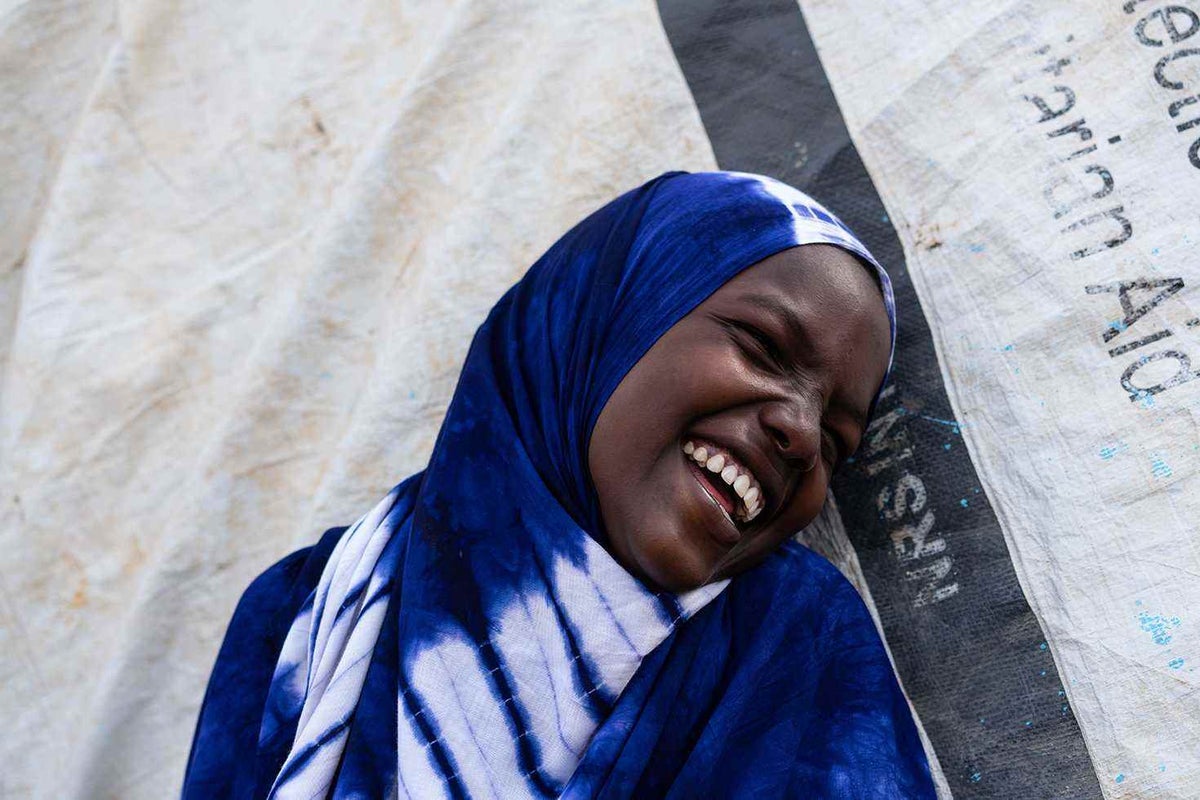
For families displaced to informal camps, UNICEF is working with local partners to provide water-trucking to ensure families have sustained access to safe water and to help prevent disease outbreaks.
UNICEF installed this water point in Somalia, but it’s the children who work hard each and every day, carrying heavy jerry cans back to their homes and families.
Health workers doing their best to keep kids smiling
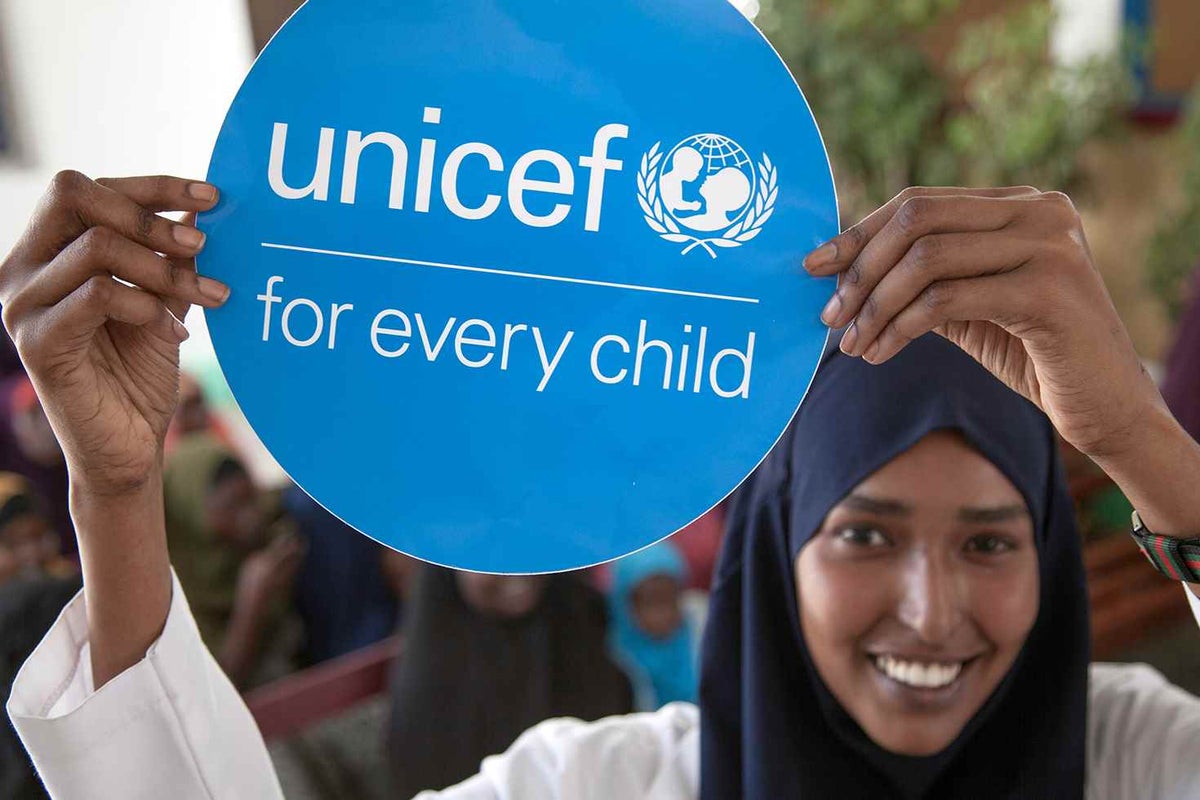
Anisa Hassan is a humanitarian hero. She works long, hard days with a UNICEF-supported health centre in Mogadishu, Somalia, treating young children for malnutrition and doing her best to keep them smiling.
"Every day I teach mothers how to keep their babies healthy and well nourished," Anisa says.
"We need to keep our children healthy. They are the future."
International support is crucial in a food crisis but it’s the local health workers who make everything possible. This year, UNICEF and partners have delivered lifesaving care and treatment to more than 200,000 children in Somalia suffering from severe acute malnutrition.
Doctors doing everything in their power to save lives
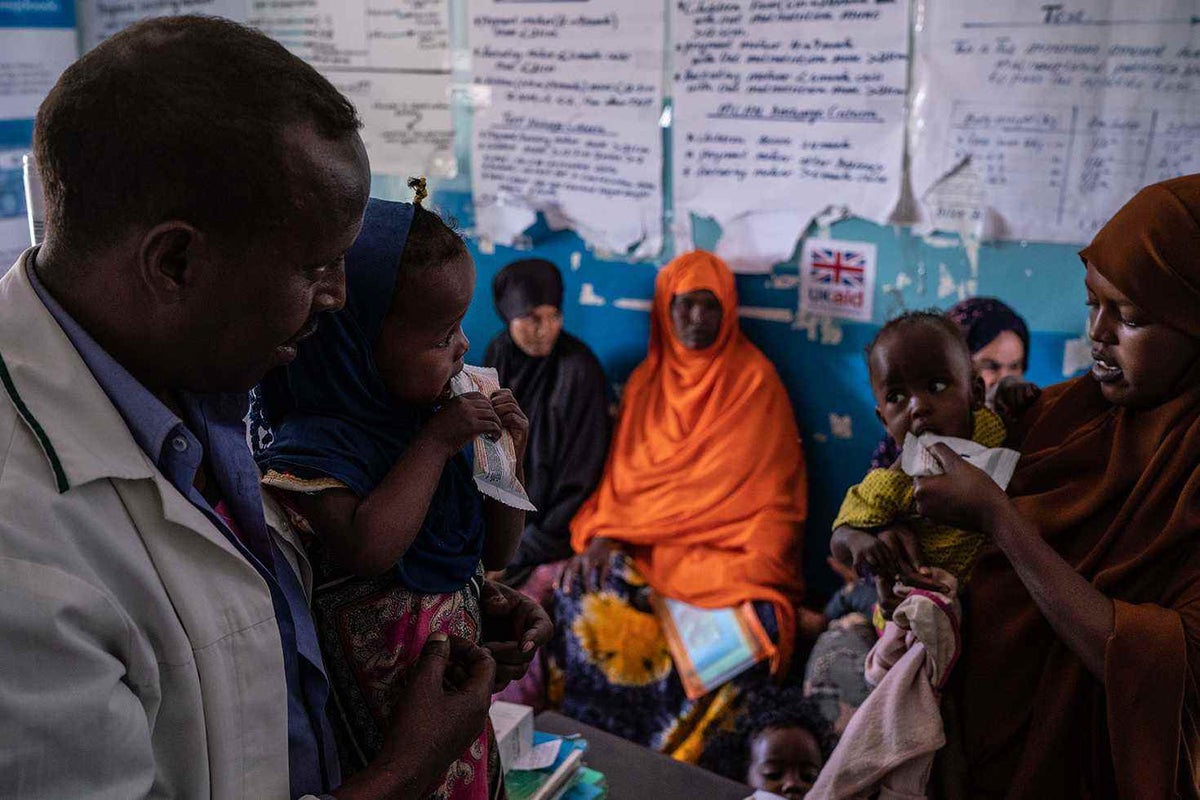
Healthcare centres and hospitals in conflict-stricken areas are often caught in the crossfire. In Yemen, the healthcare system is in pieces. Facilities and infrastructure have been destroyed and many have very few staff to run them. Every ten minutes, a parent in Yemen loses their child to a preventable disease like malnutrition.
Local doctors are doing their best to fill the void and UNICEF is standing by them. We’re supporting emergency clinics, mobile health teams and nationwide vaccination campaigns.
Health checks to find and treat sick children
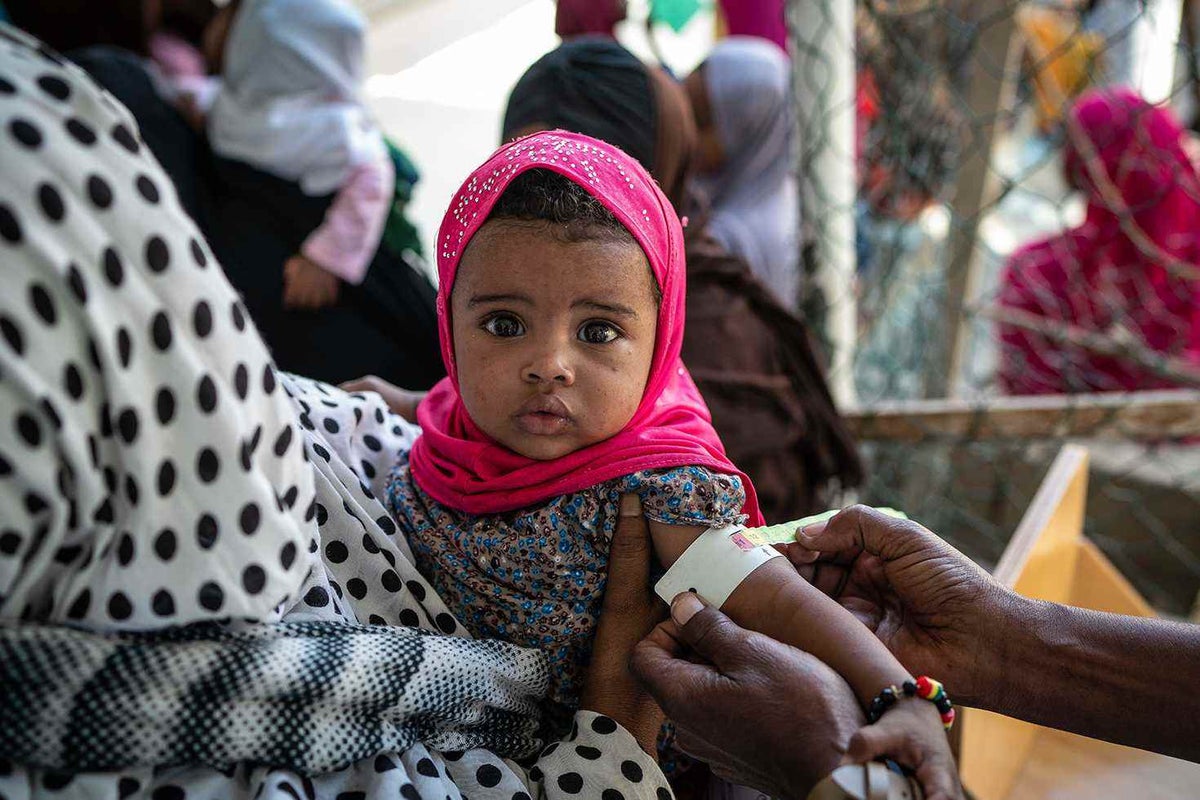
When a child has malnutrition, every day counts. Early detection significantly improves a child’s chance of survival and recovery, so UNICEF trains community health workers to identify the initial symptoms.
One of our best tools is a simple plastic tape which measures the circumference of the upper arm. If a child falls in a red zone, they have severe acute malnutrition and we have to act fast.
In Yemen alone, we aim to admit more than 320,000 children with severe malnutrition to therapeutic care in 2019.
So far, over 269,000 children under five have received primary healthcare and almost 27,000 children with severe malnutrition have received treatment.
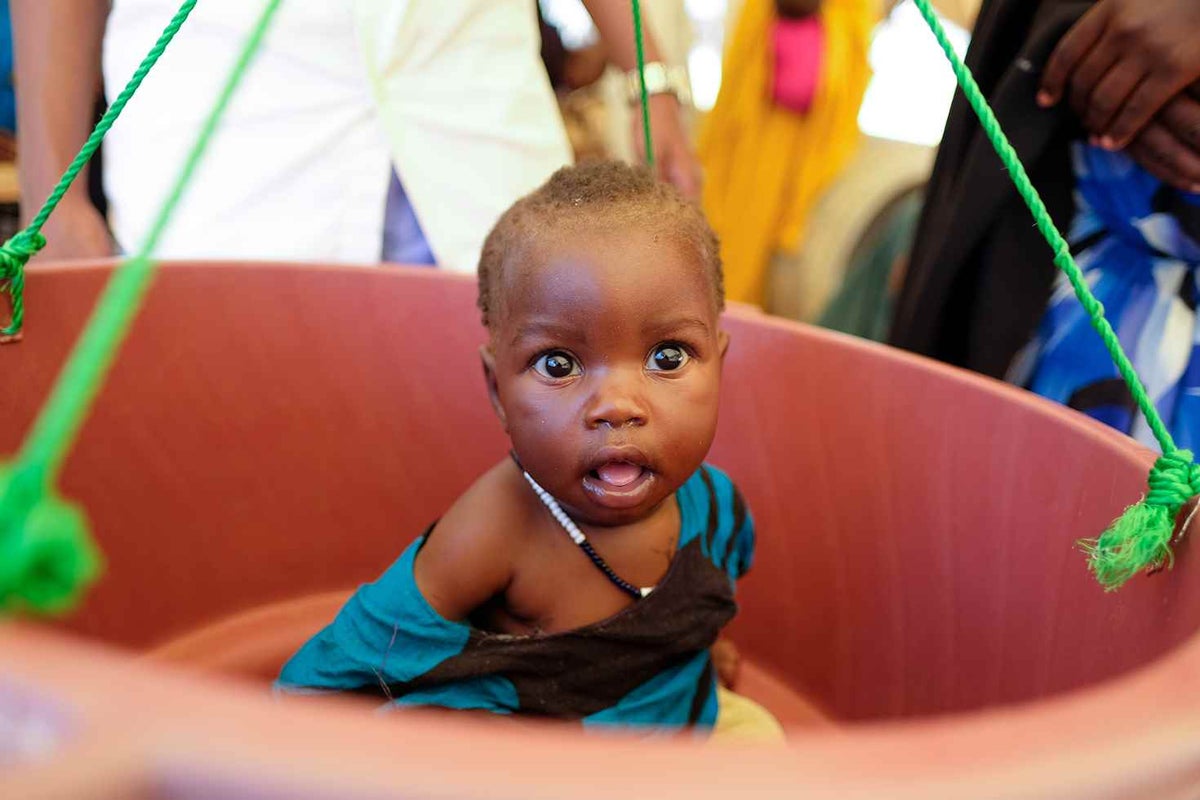
Supplies reaching children no matter where they are
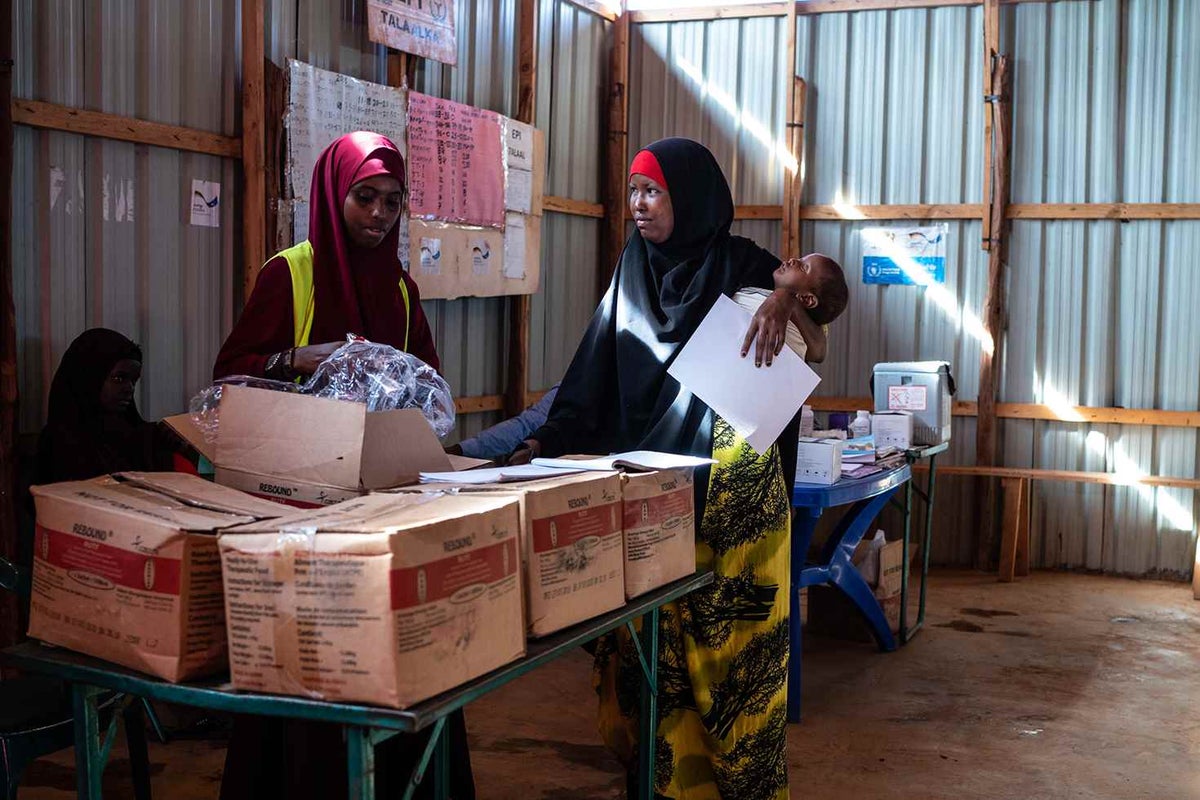
At Kabasa camp for internally displaced people in Dollow, Somalia, children and their mothers receive a daily supplement of energy and nutrient-dense food to add to their diet, help them regain weight and replenish much needed minerals and vitamins.
Every packet of therapeutic food helps a malnourished child get back to good health.
UNICEF is the world’s largest buyer of this life-saving paste, purchasing 80 per cent of global supplies every year.
Parents nursing their little ones back to health
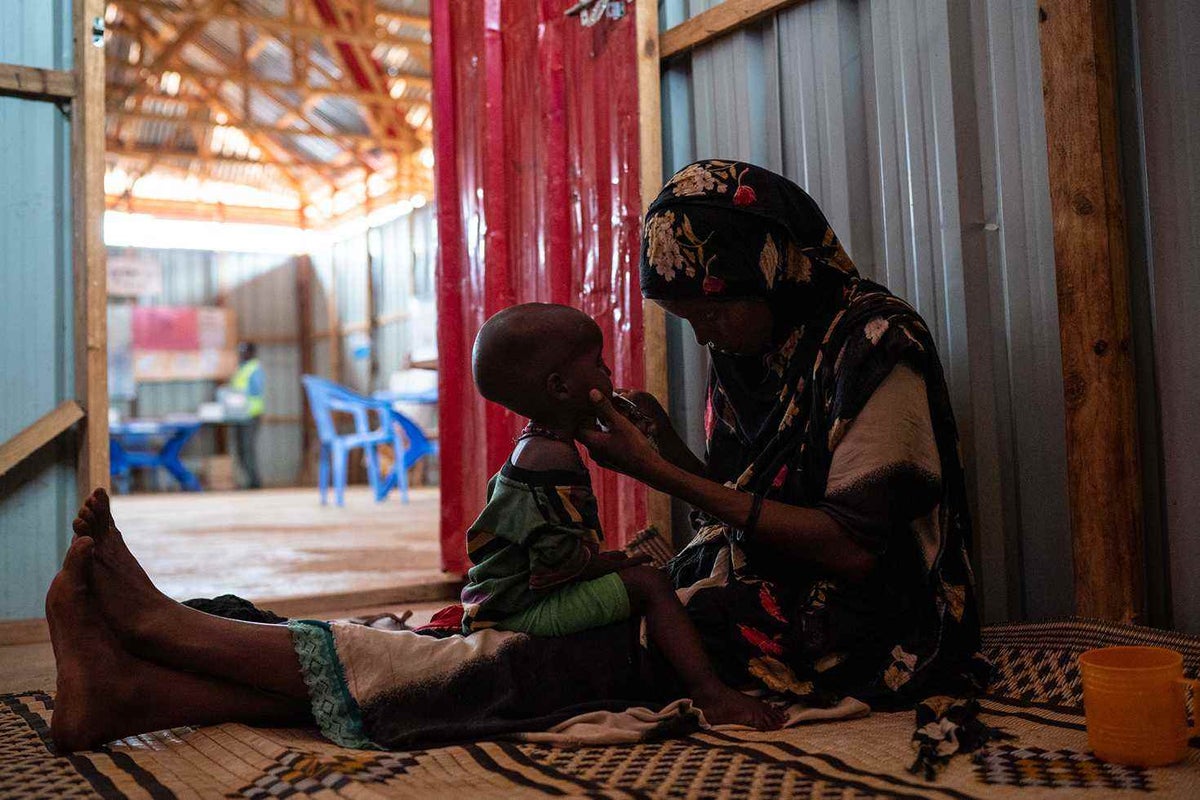
This mother feeds her malnourished child Plumpy'Nut®, a peanut-like paste enriched with vitamins and minerals, at a treatment centre in Somalia.
UNICEF helps with medical supplies but mums are the ones who nurse their children to recovery, giving them all the love and affection they need to grow up healthy.
You can help save children’s lives
We have a small window to prevent a massive loss of life. 1.5 million children are severely malnourished across Liberia, Somalia, Yemen and Afghanistan but it’s not too late to stop the worst of this unfolding catastrophe.
Parents and health workers are trying incredibly hard to save children’s lives and UNICEF is working around the clock to help them.
Together we can provide life-saving therapeutic food, water and medical care to save children’s lives. Please give generously.
Related articles
Stay up-to-date on UNICEF's work in Australia and around the world



